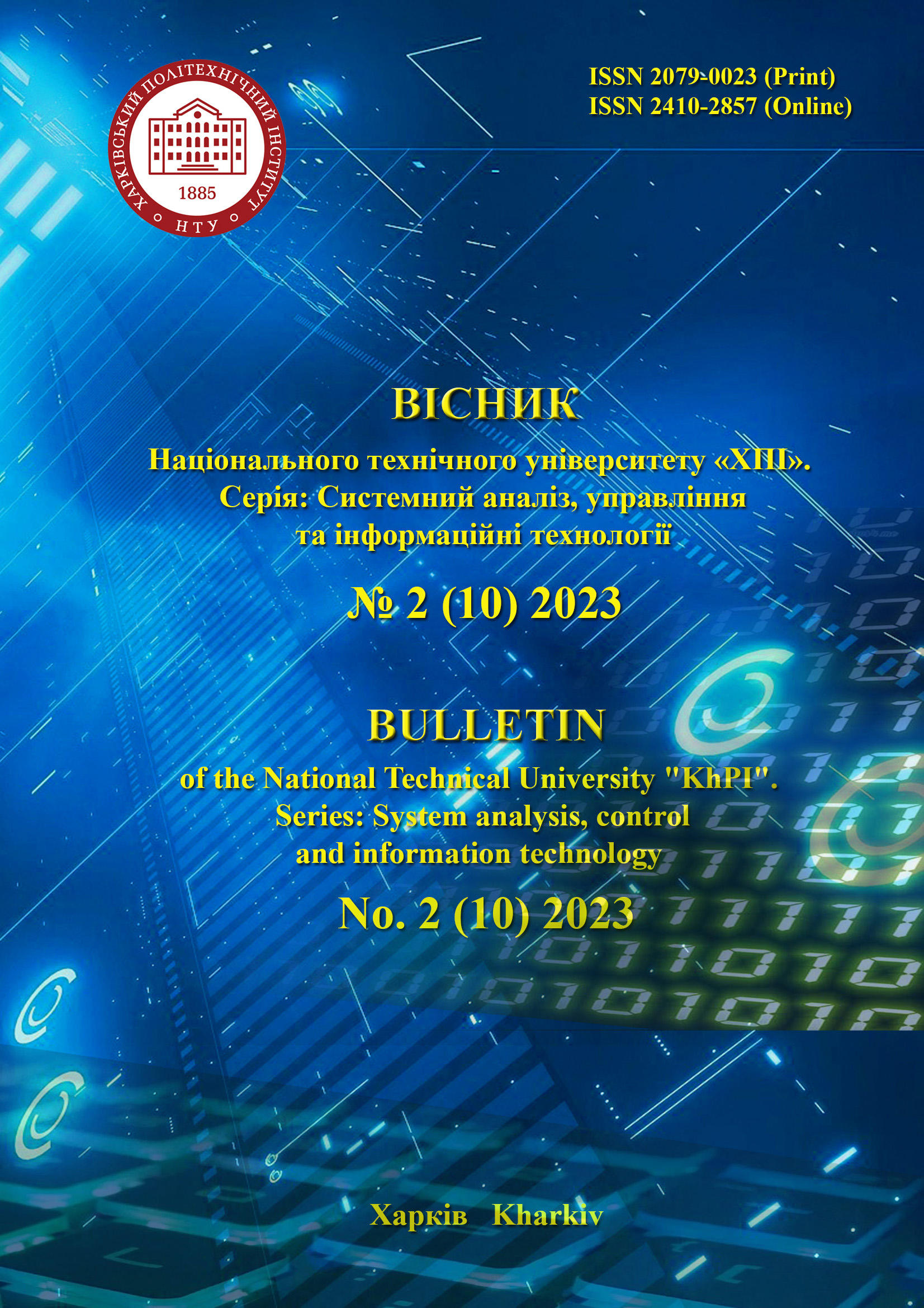BLOCKCHAIN PLATFORM SELECTION AND SOFTWARE DEVELOPMENT FOR DECENTRALIZED EXCHANGE OF BUSINESS PROCESS MODELS
DOI:
https://doi.org/10.20998/2079-0023.2023.02.06Keywords:
blockchain platform selection, software development, decentralized exchange of business process modelsAbstract
Modern organizations employing the Business Process Management (BPM) approach typically handle collections of hundreds or even thousands of business process models. Business process modeling stands as the central technology within the entire BPM methodology. In line with the BPM lifecycle, these models visually represent current organizational activities that necessitate improvement using various diagramming notations. These graphical business process models can subsequently be employed to analyze ongoing activities in the enterprise, identifying potential drawbacks or “weak spots” that hinder the company’s performance. Through business process models, organizations can modify the “virtual twins” of their organizational workflows, conduct simulations, and make informed decisions for business process improvement. Thus, business process models constitute the most valuable assets of the organization, conveying knowledge about ongoing activities and potentially encapsulating the best organizational or industry practices. The implementation of a centralized database for business process models can significantly benefit the entire organization, enhancing the efficiency of knowledge sharing and accumulation. However, centralized business process model repositories prove less efficient for inter-organizational knowledge exchange. Additionally, most business process models require significant person-hours for development and cannot be shared freely with competitors. The exchange of business process models should adhere to established mechanisms for managing valuable digital assets. Presently, Distributed Ledger Technologies (DLT), especially Blockchain, have gained enormous popularity. Therefore, we can employ the principles of Blockchain technology and the cryptocurrency industry to create software for the Decentralized Exchange (DEX) of business process models. This study explores the selection of a DLT platform and the development of software for the decentralized exchange of business process models, utilizing asset tokenization and smart contract technologies.
References
Cornel A. et al. A Smart Contract-based BPMN Choreography Execution for Management of Construction Processes. Available at: http://dx.doi.org/10.22260/ISARC2021/0118 (accessed 20.11.2023).
Lòpez-Pintado O. et al. Caterpillar: a business process execution engine on the Ethereum blockchain. Available at: https://arxiv.org/abs/1808.03517 (accessed 20.10.2023).
Di Ciccio C. et al. Blockchain support for collaborative business processes. Available at: https://doi.org/10.1007/s00287-019-01178-x (accessed 20.10.2023).
Mahgoub S. A novel framework for blockchain enabled business process. Available at: https://www.iraseat.com/wp-content/Data/JIC/V001_I01_A01_JIC-20-003.pdf (accessed 21.10.2023).
Tran A. B., Lu Q., Weber I. Lorikeet: A Model-Driven Engineering Tool for Blockchain-Based Business Process Execution and Asset Management. Available at: https://ceur-ws.org/Vol-2196/BPM_2018_paper_12.pdf (accessed 21.10.2023).
Distributed ledger technology (DLT). Available at: https://www.techtarget.com/searchcio/definition/distributed-ledger (accessed 25.10.2023).
Blockchain & Distributed Ledger Technology (DLT). Available at: https://www.worldbank.org/en/topic/financialsector/brief/blockchain-dlt (accessed 28.10.2023).
The Value of a Formal Business Process Repository. Available at: https://www.bpminstitute.org/resources/articles/value-formal-business-process-repository (accessed 07.11.2023).
What Is the Best Practice Model for BPM Programs? Available at: https://www.apqc.org/blog/what-best-practice-model-bpm-programs (accessed 12.11.2023).
What Is Tokenization in Blockchain? Available at: https://www.gemini.com/cryptopedia/what-is-tokenization-definition-crypto-token (accessed 17.11.2023).
Non-fungible tokens (NFT). Available at: https://ethereum.org/en/nft/ (accessed 17.11.2023).
How to choose the best blockchain for NFT marketplace development? Available at: https://www.ulam.io/blog/how-to-choose-the-best-blockchain-for-nft-marketplace-development/ (accessed 24.11.2023).
Ethereum: The Digital Finance Stack. Available at: https://medium.com/pov-crypto/ethereum-the-digital-finance-stack-4ba988c6c14b (accessed 25.12.2023).
What is Binance Smart Chain? Investment opportunities and ways to make money with BSC. Available at: https://coinlive.me/what-is-binance-smart-chain-investment-opportunities-and-ways-to-make-money-with-bsc-4463.html (accessed 25.10.2023).
Cardano Ecosystem. Available at: https://adavault.com/index.php/2021/03/26/cardano-ecosystem/ (accessed 25.10.2023).
Tezos Ecosystem Map v2. Available at: https://imgur.com/zj4NyZh (accessed 25.10.2023).
Which Blockchain to Choose for Your NFT Project? Available at: https://pixelplex.io/blog/top-ten-blockchains-for-nft-development/ (accessed 25.10.2023).
ten Have H. Maximin Principle. Available at: https://doi.org/10.1007/978-3-030-54161-3_345 (accessed 29.11.2023).
Xml2js. Available at: https://www.npmjs.com/package/xml2js (accessed 29.11.2023).
Bootstrap. Available at: https://getbootstrap.com/ (accessed 29.11.2023).
Axios Docs. Available at: https://axios-http.com/docs/intro (accessed 29.11.2023).
React. Available at: https://react.dev/ (accessed 29.11.2023).
Token Metadata Standard (Version 1.0). Available at: https://docs.metaplex.com/programs/token-metadata/changelog/v1.0 (accessed 29.11.2023).
How Much Does It Cost to Mint an NFT? Available at: https://www.ulam.io/blog/cost-of-minting-nfts-on-different-blockchains-and-how-to-reduce-them (accessed 29.11.2023).
Model Collection of the Business Process Management Academic Initiative. Available at: https://zenodo.org/record/3758705#.ZFTSlHZBxPY (accessed 30.11.2023).
Downloads
Published
How to Cite
Issue
Section
License

This work is licensed under a Creative Commons Attribution 4.0 International License.
Authors who publish with this journal agree to the following terms:
- Authors retain copyright and grant the journal right of first publication with the work simultaneously licensed under a Creative Commons Attribution License that allows others to share the work with an acknowledgement of the work's authorship and initial publication in this journal.
- Authors are able to enter into separate, additional contractual arrangements for the non-exclusive distribution of the journal's published version of the work (e.g., post it to an institutional repository or publish it in a book), with an acknowledgement of its initial publication in this journal.
- Authors are permitted and encouraged to post their work online (e.g., in institutional repositories or on their website) prior to and during the submission process, as it can lead to productive exchanges, as well as earlier and greater citation of published work (See The Effect of Open Access).

